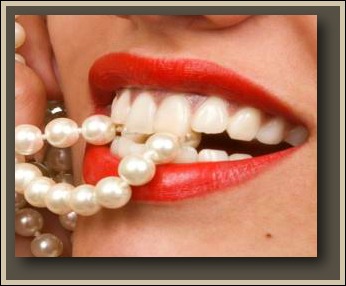
Three Big Reasons To Care About Oral Hygiene.
Most people are lazy when it comes to maintaining oral hygiene. Sure, maybe you brush twice daily and maybe even floss once in a while. But when brushing, are you fulfilling the two-minute requirement to sufficiently remove plaque? Are you thoroughly flossing those hard-to-reach teeth in the back? Are you using an electric toothbrush rather than a manual one do a deep cleaning instead of just the outer surfaces?
Probably not, because statistics show that less than 10 percent of us are taking care of our teeth the way dentists recommend.
“But I haven’t had any cavities in years! Why should I do more when my current methods are enough?” you ask. Well, there are three big reasons that the average person would consider good reasons to go above and beyond with teeth cleaning.
Good Breath
Those altoids you pop in your mouth after lunch only do so much for a limited amount of time, usually about 30 minutes. If you don’t practice excellent oral hygiene habits, your natural reeking breath rebounds until you do something about it. Think about that. Whether you’re in the middle of a first date or a job interview, or even just talking, bad breath (known as Halitosis) can affect how others perceive you.
Fabulous Smile
First impressions mean the most, and a great smile helps you look and feel your best. Even if you had braces and your teeth whitened by a cosmetic dentist, insufficient habits will inevitably lead to the downfall of your pearly whites. Staining drinks like red wine and coffee stain your teeth too, and also leave sugar behind for the bacteria to feast on. Make sure to immediately brush your teeth after eating or drinking the following to best maintain your smile:
-
Red or White Wine
-
Coffee
-
Black Tea
-
Berries
-
Hard candy
-
Sauces
-
Sodas
Prevent Hefty Expenses
You may not see any serious expenses billed right now, but long-term mediocre oral habits will inevitably result in necessary surgeries, dental implants and gum disease. Perhaps this is the most important reason to make time for healthy habits. Poor oral care is linked to many medical conditions, both dental and non-dental. For example, did you know that those with type one and type two diabetes have a higher risk of suffering dental problems? Some of these problems include tooth decay (cavities), Gingivitis (gum disease) and Periodontitis (advanced gum disease).
-
Tooth decay - Cavities are formed when the natural bacteria in your mouth interacts with the starches and sugars in food you eat, leaving a film of plaque on your teeth. This plaque eats away the protective layer over your teeth, called enamel. Those with high blood sugar levels produce more starch and sugar, which puts more pressure on teeth and disintegrates parts of them.
-
Gingivitis - Gum disease, in its early stages, develops when a person goes without brushing or flossing regularly. The initially easy-to-remove plaque coating the teeth begins to harden, forming tartar. Tartar irritates the gum line, leaving gums to bleed easily and swell.
- Periodontitis - If Gingivitis is left untreated, major repercussions develop. The infection upgrades to Periodontitis, which affects the soft bone tissue and bone that support the teeth. In some cases, the gums pull away from the teeth, loosening them and causing them to fall out. Those with diabetes have a harder time fighting the infection, so it’s best to maintain those excellent oral habits from the beginning. .
- Fabulous Foods
- Feel better with articles from our Health Section.
- Get some laughs from our Humor Section
- View Fantastic Photos
- Take a trip through our Travel Section.
*Note - In accordance with Title 17 U.S.C. Section 107, any copyrighted work distributed under fair use without profit or payment to those who have expressed a prior interest in receiving the included information for non-profit research and educational or criticism purposes only. We make no claims to All graphics, photographs and cartoons etc. And we charge no fee for services. We do this because we love to give to others and make people smile :D If you see a graphic, comic, photo, joke, poem, quote, etc., that you feel belongs to you and you wish to have it removed from this website, please go to contact link and write to editors and they will promptly remove such graphic, comic, photo, etc. from the website so long as you have your proof of copyright. Many of our photos and graphics are from free public domain database sites Thank you
To return to the top of the page about Three Big Reasons To Care About Oral Hygiene. click here. Thank you for reading this article. Please feel free too share it with your family, friends and your social network.
Check out these great sections
